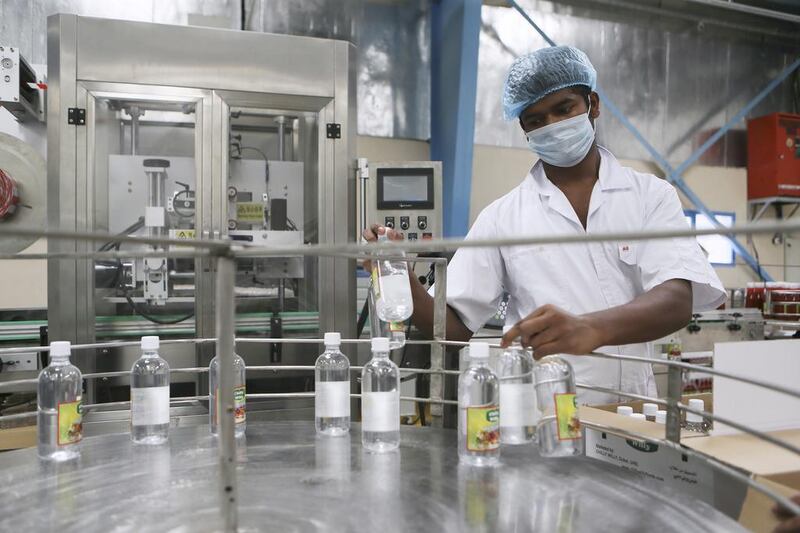Non-oil business activity in the UAE had the strongest third quarter in two years on the back of strong growth in output and jobs, a key economic gauge for the second biggest Arabian Gulf economy showed.
The UAE Purchasing Managers' Index, sponsored by Emirates NBD and produced by IHS market, showed the average PMI for three months ending September 30 was 56.1, the strongest since the third quarter of 2015, when it was at 56.3. For the month of September gauge slowed to 55.1 from 57.3 in August as the pace of expansion dipped from the four-month high in August.
"Although the headline purchasing managers index eased slightly in September, the average reading for the third quarter was the highest in two years, underpinned by strong growth in output and new work," said Khatija Haque, the head of Middle East and North Africa research at Emirates NBD.
"The survey suggests that economic growth accelerated last quarter, and that domestic demand remains solid, despite relatively modest jobs growth."
__________________
[ UAE central bank reduces liquidity as signs of economic recovery increase ]
[ Dubai’s non-oil private sector unchanged in August ]
__________________
While there was a decrease in new orders from abroad, the data suggested orders from the domestic market rose. Meanwhile, the level of employment continued to rise in September, the 17th month in succession, even though it eased slightly in August. As in previous months this year, companies said that they had dropped selling prices to attract buyers.
The UAE's non-oil economy, which has been subject to lower growth in recent years, is set to get a boost from a pick-up in government spending ahead of Expo 2020.
Economists also say that an improvement in the global economy is aiding tourism and real estate. The global economy is forecast to grow 3.5 per cent this year before accelerating to 3.7 per cent in 2018, the best rate since 2011, according to the OECD.
Consumer confidence, which has also been improving in the UAE, is set to get a lift from the introduction of a value added tax as people buy durable goods before the 5 per cent levy is introduced on January 1, 2018.
Non-oil GDP is forecast to expand by 3.3 per cent this year from 2.7 per cent last year, the IMF said in May. Abu Dhabi Commercial Bank and Standard Chartered, the emerging market specialist lender based in London, are both forecasting that the non-oil economy will grow 3.2 per cent this year compared to 2.7 per cent last year.
In Saudi Arabia, the Arab world's largest economy, the kingdom's PMI, also sponsored by Emirates NBD and undertaken by IHS Market, slipped to 55.5 in September from 55.8 in August. Even though the rate of expansion slowed, those surveyed said there is strong underlying demand as firms, like those in the UAE, reduced selling prices to boost sales.
"The PMI for Saudi Arabia has been relatively stable in the third quarter, signalling a solid expansion in non-oil sector growth last quarter," Ms. Haque said.
"While output and new order growth has remained strong, external demand was softer compared to a year ago, as was employment growth. The announcement of key reforms and a successful US$12 billion debt issue in late September should have a positive impact on both sentiment and business activity in the coming weeks."
Firms polled by the IHS said that they anticipated an uptick in business activity in the next 12 months.





